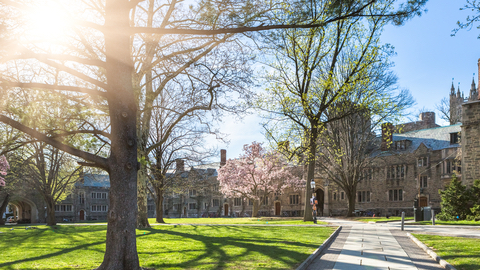
Researchers at Princeton University have received a $2.5 million federal grant to lead an interdisciplinary effort that will develop a scientific process for establishing urban food systems that are less wasteful and less environmentally detrimental. The grant was awarded by Innovations at the Nexus of Food, Energy and Water Systems (INFEWS) – a joint program of the National Science Foundation and the U.S. Department of Agriculture’s National Institute for Food and Agriculture – and will be administered by the Princeton Environmental Institute (PEI).
The research will involve multiple disciplines, including environmental and civil engineering, public policy, earth science and applied economics. The project is intended to provide a scientific basis and roadmap for the food action plans that cities are creating to make urban food systems more sustainable and resilient. The research team will work with urban farmers, food scientists, policymakers, and nonprofit organizations to translate local sustainability to areas immediately outside of the city where much of the food is grown.
“So little is known about the role of urban food systems in the context of local and global sustainability,” said lead investigator Anu Ramaswami, professor of civil and environmental engineering. “Our research group will focus on the co-benefits of urban agriculture and novel food-waste management systems that are being considered in different cities worldwide. We will be developing methods to assess their benefits to the environment, human health and people’s emotional well-being. The potential benefits include carbon mitigation, healthy diets and nutrition, reducing the effects of extreme heat and flooding, waste reduction, and simply making people happier.”
Ramaswami is teaming up on the project with co-principal investigator Z. Jason Ren, Princeton professor of civil and environmental engineering and other researchers at the University of Minnesota and Syracuse University.
“It is very exciting to work with this team to understand and tackle the complex nexus of food, energy and water,” Ren said. “We will work with Princeton’s S.C.R.A.P [Sustainable Composting Research at Princeton] Lab to convert campus food waste into value-added energy and products, and we will work with community gardens in Minneapolis to apply food waste-derived soil fertilizers to evaluate their economic and environmental co-benefits.”


